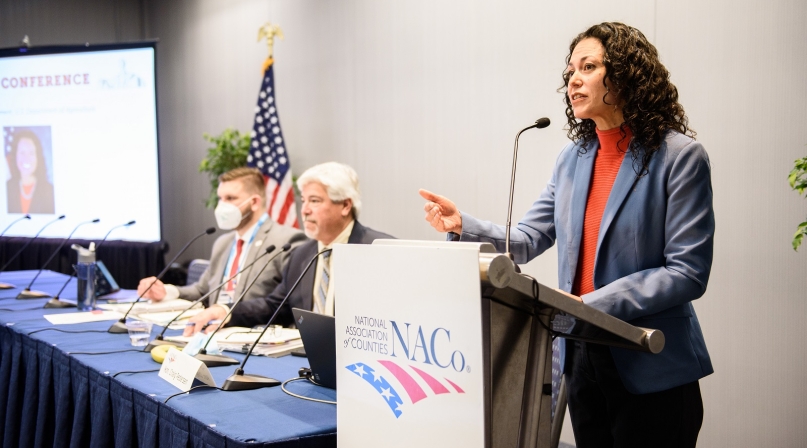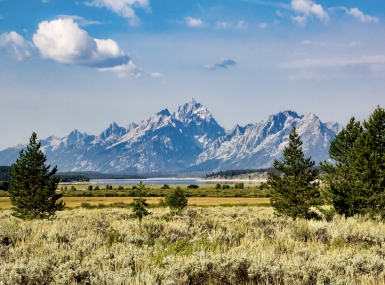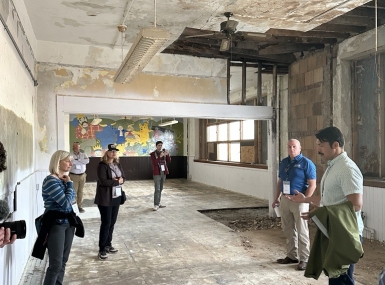Capacity building tops Rural Development agenda

Key Takeaways
The Biden administration will focus its rural development agenda on capacity-building, moving away from one-off projects to a more intentional approach.
Xochitl Torres Small, undersecretary for rural development, told NACo’s Agriculture and Rural Affairs Steering Committee Feb.12 at the 2022 Legislative Conference that rather than giving rural counties the money to buy what they need, like fire engines, Agriculture Sec. Tom Vilsack would rather help grow a county’s tax base so it can make its own purchases.
“Without that local capacity, all rural development has is money in a room – it’s your vision, and more importantly your work, that turned that into good, reliable internet, safe roads and good drainage, health care clinics and more,” Torres Small said.
The goal is to first understand the visions that communities have, and then work with partners on the ground to find the right ways to support that vision, she noted.
‘We’re an agency with terrific potential and resources, but the trick is to make those resources flexible, so it’s less like having to walk into a bank and put together your portfolio and pick the exact right thing to apply for, but more like being in your backyard, working on a project and your neighbor knocking on your door and saying ‘Hey, I see you’re working on this, do you want to borrow any of my tools?’”
Torres Small said the wishes and plans forged by communities should guide development efforts
“They say that in rural development, you can build a town from the ground up, but it’s the people who do that,” she said. “Rural development works not to build towns out of thin air, but to be there to support people who want to turn their vision, for their own home, into a reality.”
Foundational support will be crucial in making that happen, and identifying and filling in gaps that prevent a community from reaching its full capacity, whether that is programmatic support, funding, traditional infrastructure, broadband connectivity or more.
She touted the Re-Connect program, which combines grants and loans to fund broadband expansion.
“If you’re rural, you haven’t just heard of a kid who’s sat outside a Taco Bell to turn in their homework, you know that kid. Maybe that kid is your kid,” she said. “You haven’t just heard about an elderly person who is trying to get to their health care appointment but can’t drive anymore. You know that person who’d really benefit from tele-health.”

Attachments
Related News

Congress Passes Landmark Outdoor Recreation Package
Lawmakers passed the bipartisan EXPLORE Act (H.R.6492) on December 19 to boost outdoor recreation opportunities on public lands for county residents and visitors and aid gateway communities

Senate Agriculture Committee introduces 2024 Farm Bill
On November 18, Senate Agriculture, Nutrition and Forestry Committee Chairwoman Debbie Stabenow introduced the Rural Prosperity and Food Security Act, the Senate’s version of the 2024 Farm Bill.

Co-locating community: Rural revitalization in Fayette and Greenbrier Counties
This fall, NACo’s BRECC Commitment Coalition convened 20 leaders supporting coal-impacted communities for a three-day peer exchange to explore revitalization efforts across Fayette County and Greenbrier County, W.Va.
